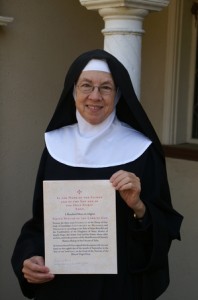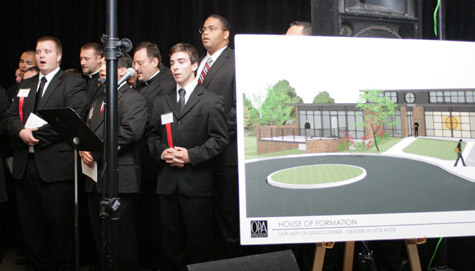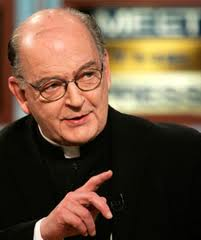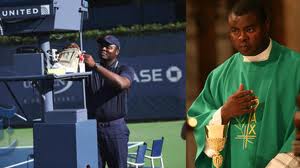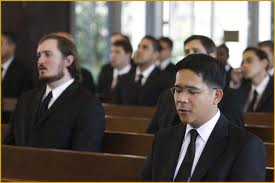 The following essay by Br. Gabriel Torretta, O.P., first appeared in Dominicana 60:1 (Spring 2011), 7-9, and it and was recently reprinted in its online edition. We reprint it here because of the excellent insights it provides on the subject of vocational discernment.
The following essay by Br. Gabriel Torretta, O.P., first appeared in Dominicana 60:1 (Spring 2011), 7-9, and it and was recently reprinted in its online edition. We reprint it here because of the excellent insights it provides on the subject of vocational discernment.
If you’ve ever thought about a priestly or religious vocation, perhaps this prayer has passed your lips: “God, if it’s your will that I do this, just give me a sign!” The prayer is easy, natural, and ubiquitous among those ‘discerning.’ But this little prayer may also be the single easiest way to short-circuit a vocation and leave a man dead on the waters of life.
The problem with this prayer is that it pits God’s will against mine, as two discrete entities, one of which must give way to the other. Will looks like a zero-sum game: if I win, God loses, and if I lose, God wins. The danger is that when I compete with God, whoever wins, I lose.
Moreover, the prayer assumes that God’s will is an inscrutable mystery that I must implore Him to reveal. My will bears no sure relation to God’s, and I have no way of knowing if my desires are really holy or just selfish. My desire and my will are like a mercury thermometer with all the numbers rubbed off; I could be edging toward spiritual hypothermia or burning with zeal, but I’ll never know unless God puts the numbers back on. As a result, I have to ask God to give me extraordinary signs so that I can know what to do and how to do it.
But asking for signs from God is a dangerous endeavor. More often than not, “God give me a sign” really means “God, do what I tell you,” or “Give me the kind of sign I want you to give.” Jesus himself addresses this problem in the Gospels; after a series of remarkable miracles and authoritative teachings, the disbelieving scribes and Pharisees tell Jesus, “Teacher, we want to see a sign from You,” to which Jesus responds, “An evil and adulterous generation craves for a sign; and yet no sign will be given to it but the sign of Jonah the prophet” (Mt 12:38-39; cf. Mk 8:11-12, Lk 11:29). The question betrays the blindness of the questioners, because Jesus’ entire life is the sign they claim to be looking for. The Pharisees refuse to observe the reality unfolding before them and instead ask for a sign on their own terms. The honest men among the Pharisees may have asked the question in earnest, hoping that God would help them decide whether or not to follow Jesus. But their purported ardor for God’s will blinded them to the marvelous ways God was actually working in their lives.
This is the blindness of moralism. The moralist ‘discerns’ as if to wrest the secret of God’s will out of His hands by brute force; dashing from one spiritual program to another and from one vocation event to the next, he pours out novenas, rosaries, and mass intentions, begging God to reveal the mystery of his vocation. All the while the moralist ignores the actual signs God has been pouring into his heart. For God’s will is not radically opposed to my will; rather, God’s will works through mine, moving it by grace to respond to Him with a total gift of love. Jesus spoke of this to the great Dominican mystic St. Catherine of Siena after a period of spiritual darkness: “Your will is a sign to you that I am there, since I would not be within you by grace if you had an evil will” (Letter T221/G152). Formed by a life lived with God, my will can be the signpost by which God directs me where He wants me to go.
Vocation is not a shell game in which I have to outwit God and find the perfect life He has hidden among all the options in the world. Vocation is a call of love to love. God moves our hearts to love Him, to answer the one, universal call to holiness. The Christian’s task is to respond to that love concretely with the complete gift of himself. To give himself utterly, he needs the honesty, generosity, wisdom, and prudence that come from God, for which he must pray. Then, when his heart burns with a specific desire to love God with this woman, or this religious order, or in this diocese, then he decides and commits himself irrevocably into God’s hands. This is the mystery of vocation. This is the mystery of love.
